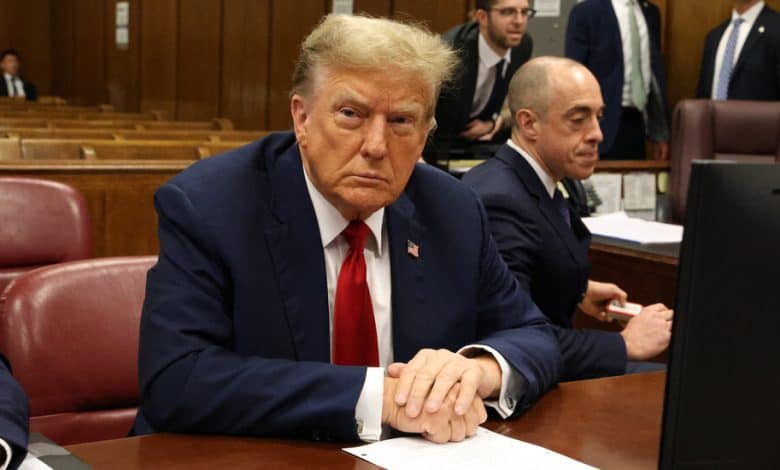Donald Trump, the Defendant

He scoffed. He slumped. He seemed to sleep.
And all the while, he was, for all intents and purposes, stuck.
As the first criminal trial of former President Donald Trump began on Monday with jury selection, he was something he has never wanted to be: a criminal defendant, glowering next to his lawyers, tethered to the rulings of a judge he has railed against and the pedestrian scheduling requirements of the court system.
“This is an assault on America, nothing like this has ever happened before,” Trump said before he went into court on Monday morning, accusing his political rivals of orchestrating the trial but offering no evidence. Trump claimed the charges that he falsified records to cover up a sex scandal with the porn star Stormy Daniels amounted to political persecution.
Still, he added, “I’m very honored to be here.”
Later this month, a different set of lawyers for Trump will appear at the Supreme Court to argue that he is immune from prosecution in another one of his criminal trials, the federal case in which he is charged in connection with his efforts to subvert the 2020 election. They are expected to tell the nation’s highest court, essentially, that Trump’s status as a president during the events in question means he cannot be tried as “Citizen Trump,” as a panel of appeals court judges ruled he could.
But on Monday in New York, that’s exactly what Trump was — a regular citizen who is often referred to in court simply as “the defendant,” and who is facing a criminal trial in his hometown. Trump has long sought to use the justice system for his own benefit, taking cues from his combative former lawyer and fixer, Roy Cohn.
“He learned at Roy Cohn’s knee that if you had enough money and enough brute will, you could weaponize the court system against your opponents and your critics and your enemies and it wouldn’t snap back on you,” said Tim O’Brien, a biographer of Trump who was himself the subject of a libel lawsuit from Trump, which was dismissed.
